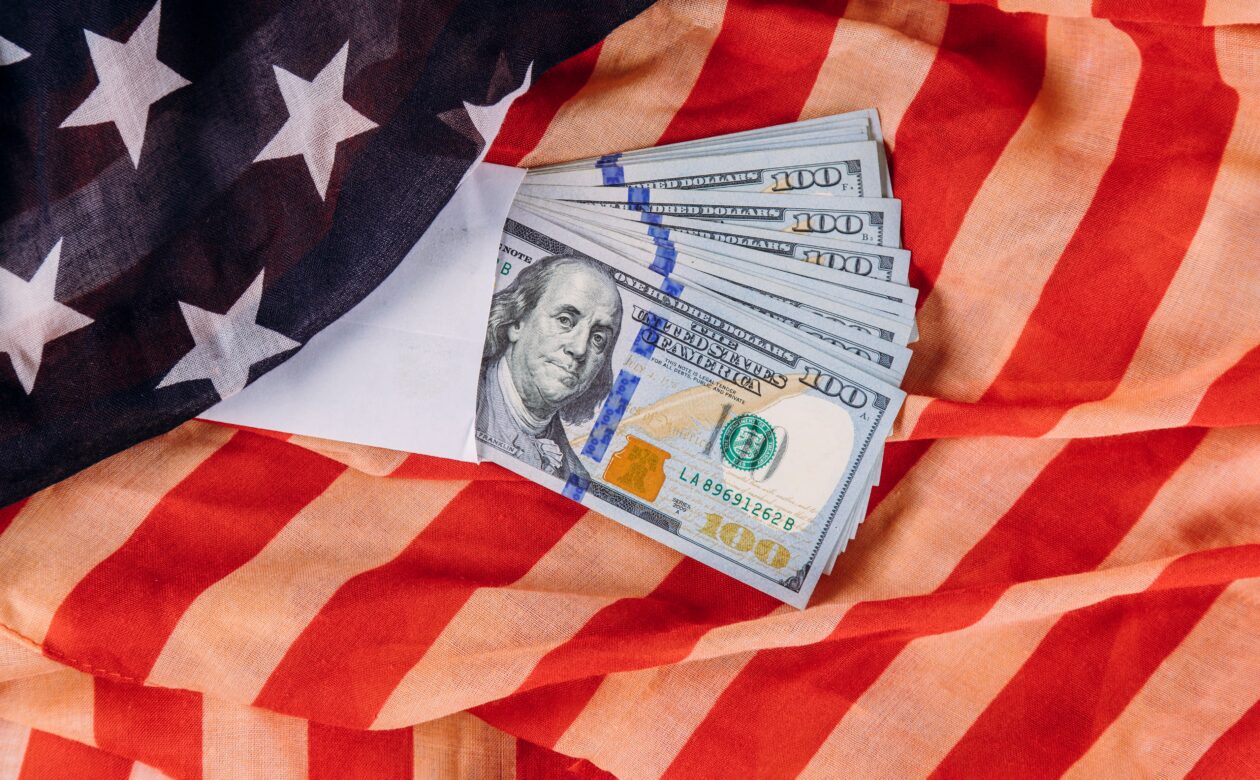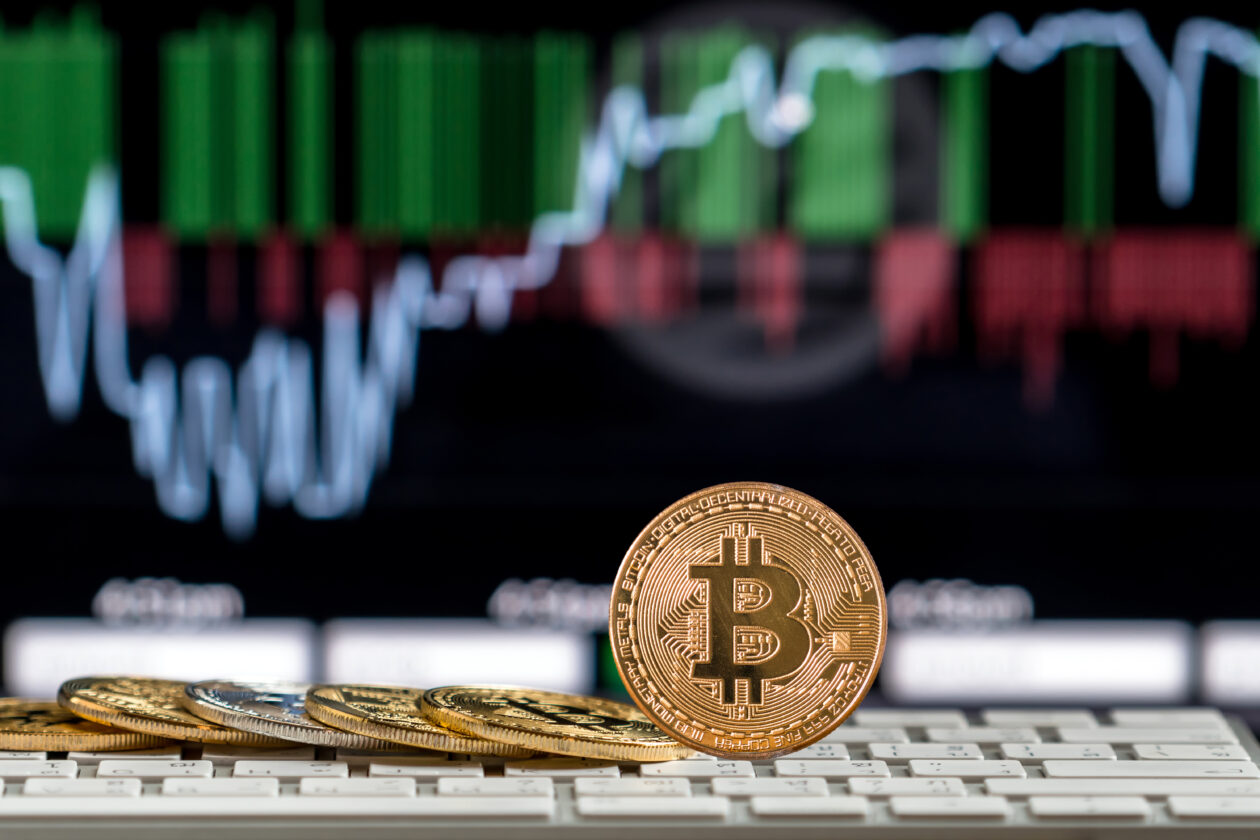Bitcoin, Ether and most other top ten non-stablecoin cryptocurrencies gained in Wednesday afternoon trading in Asia, except Binance’s BNB and Tron. Litecoin also strengthened ahead of its halving event, its first since August 2019, during late evening on Wednesday in Asia. Global stock markets took a hit after Fitch Ratings credit agency downgraded U.S. credit rating.
See related article: Shanghai plans blockchain infrastructure hub to link with Hong Kong, Singapore by 2025
Bitcoin leads gainers
Bitcoin gained 2.11% to US$29,543 in 24 hours to 4 p.m. in Hong Kong, bringing its weekly gains to 1.11%, according to data from CoinMarketCap. The world’s largest cryptocurrency recovered after falling below the US$29,000 support line to a low of US$28,657.02 overnight. The token was also the biggest gainer in the last 24 hours.
Earlier in the day, Bitcoin threatened to break through the US$30,000 resistance level on the back of Tuesday’s announcement that software developer MicroStrategy plans to sell US$750 million of stock.
“Cryptocurrencies were in the red, extending losses since last month’s peak. Overall, the market has been able to rebound to a certain extent since the beginning of the year but could come under some pressure as traders could continue to secure their gains,” Denys Peleshok, Head of Asia at London-based financial trading firm CPT Markets, said in email comments on Tuesday.
“The market has been reacting to the legal challenges crypto companies have been facing in addition to changes in sentiment and monetary policy in the U.S. in particular,” Peleshok added.
Decentralized stablecoin exchange Curve Finance reported a security issue in older versions of Vyper, the programming language used for smart contracts. According to data from smart contract auditing firm BlockSec, hackers drained an estimated US$41 million in cryptocurrencies from the platform as a result of the malfunction.
“The decline of Curve could constitute a risk for DeFi [decentralized finance] and could fuel caution among traders. The exploit and subsequent fall of the protocol could reignite fears of large-scale failures in other crypto assets,” Peleshok said.
“Such concerns could see investors favor Bitcoin instead of other smaller cryptocurrencies and could help the largest crypto regain some market dominance after it stabilized around 50% of the total market value,” Peleshok added.
Ether, the world’s second-largest cryptocurrency, gained 1.11% to US$1,854 in the past 24 hours, and has risen 0.06% on the week.
BNB, the native token of world’s largest crypto exchange Binance, fell 0.43% to US$244.53, although it has gained 2.89% in the last seven days. On Tuesday, Binance announced the launch of Binance Japan K.K., offering 34 coins, making it the country’s largest exchange by token offerings.
According to the Wall Street Journal, China is Binance’s largest market despite the country’s ban on crypto, with users trading about US$90 billion worth of cryptocurrency-related assets in May.
Litecoin gained 0.77% to US$91.14 in 24 hours, bringing its weekly gains to 1.57%. The Litecoin halving event will take place later on Wednesday and is expected to cut mining rewards to increase its scarcity and potentially boost its price.
“Litecoin has been performing well recently… The halving event is expected to impact the Litecoin network and its price significantly. Investors are positioning themselves ahead of the halving, anticipating a positive effect on the cost of LTC and the broader market,” Robert Quartly-Janeiro, chief strategy officer of crypto exchange Bitrue, said in emailed comments on Wednesday.
The next Bitcoin halving is scheduled for April next year, which occurs roughly every four years.
“The Bitcoin halving will reduce the block rewards from 6.25 BTC to 3.125 BTC per block. This reduction in rewards and rising mining costs will likely lead to a decline in the Bitcoin mining hash rate and pose challenges for miners,” Quartly-Janeiro said.
“Only the most efficient miners with low energy costs and efficient equipment are expected to survive, while others may be forced to shut down their operations,” Quartly-Janeiro added.
The total crypto market capitalization increased 1.50% to US$1.18 trillion, while crypto market volume jumped 20.45% to US$38.86 billion in the last 24 hours.
Ethereum NFT sales volume drop
The Forkast 500 NFT index gained 0.38% to 2,515.10 at 6.20 p.m. in Hong Kong but weakened 4.66% on the week.
Forkast’s Ethereum, Solana and Polygon NFT market indexes all logged losses in the past 24 hours.
Total NFT sales volume dropped 5.5% to US$18.87 million in 24 hours, according to data from CryptoSlam.
Sales volume on Ethereum, the largest NFT network, dropped 12.21% to US$12.07 million. Ethereum-based Bored Ape Yacht Club topped NFT collections by sales volume, although it fell 13.14% to US$1.02 million.
Trading volumes on Polygon climbed 64.08% to US$1.86 million in the past 24 hours to take second spot in CryptoSlam’s rankings. Among NFT collections by sales volume, Polygon-based DraftKings ranked second, rising 7.8% to US$1.01 million in 24 hours.
“The NFT market is made up of much more than just what’s on Ethereum, so it’s great to see other chains get some attention,” said Yehudah Petscher, NFT Strategist at Forkast Labs.
“NFTs are growing, and while it’s hard to see in the moment when we’re sometimes so fixated on prices, I implore you to zoom out and see how far NFTs have come. It’s an exciting time for NFTs and one that’s worth your attention, especially in this major bear market,” Petscher said.
Meanwhile, Starbucks launched its eighth NFT collection, “Green Apron,” on the Nifty Gateway NFT marketplace on Tuesday. The collection, celebrating 50+ years of service, is part of the Seattle-based coffee shop chain’s blockchain reward program Starbucks Odyssey.
Global stock markets take a hit after Fitch downgrades U.S. credit rating

U.S. stock futures fell as of 7.10 p.m. in Hong Kong, with the Dow Jones Industrial Average futures, the S&P 500 futures, and the Nasdaq 100 futures all in the red.
The Fitch Ratings credit agency announced Tuesday that it had downgraded the U.S. credit rating from AAA to to AA+. The decision arrives in the aftermath of the U.S. debt ceiling standoff between Republican and Democratic lawmakers that threatened to derail global markets earlier in the year.
A Fitch statement said the downgrade reflects an “expected fiscal deterioration” in the U.S. over the next three years. It also cited a growing government debt burden and the deterioration of fiscal and debt governance over the last two decades as reasons for the downgrade.
Tighter credit conditions, weakening business investment, and a slowdown in consumption will push the U.S. economy into a mild recession in the fourth quarter of the current year and in the first quarter of next year, according to Fitch projections. The ratings agency said it sees U.S. annual real GDP growth slowing to 1.2% this year from 2.1% in 2022 and overall growth of just 0.5% in 2024.
“While the latest report from Fitch will have a minimal impact, two major credit downgrades, industrial-scale money printing to monetise astronomic debts, and rivals like China and their allies looking to take the financial crown from the U.S., can be expected to speed-up the long-term decline of the dollar,” Nigel Green, the CEO and founder of the deVere investment advisory group, said in emailed comments on Wednesday.
The Federal Reserve next meets to discuss interest rates on Sep. 19 and 20. After a 25 basis point hike in July, rates now stand between 5.25% to 5.5%, the highest since January 2001.
“There is some possibility that inflation will prove to be more sticky, tempting the Fed into further rate hikes. It is even more possible that some shock to the real economy could tip us into recession,” David Kelly, chief global strategist at J.P. Morgan Asset Management, wrote on Monday.
“We believe that a recession, when it eventually arrives, should be relatively mild and should leave a low-inflation, low-interest rate environment in its wake. However, the market volatility that normally precedes a recession could inflict disproportionate damage on the most over-valued assets today,” Kelly said.
All major Asian stock markets declined, with Hong Kong’s Hang Seng and Japan’s Nikkei both dropping more than 2% at the end of trading hours on Wednesday.
European bourses were also hit by the unexpected downgrade of the U.S. credit rating, with both the benchmark STOXX 600 and Germany’s DAX 40 losing during afternoon trading hours in Europe.
Still, investors are looking forward to a slew of corporate results from companies such as Paypal, Thomson Reuters Corp., Ferrari, Robinhood and others on Wednesday. Apple and Amazon’s second quarter earnings are expected on Thursday.
(updates with equities section.)






